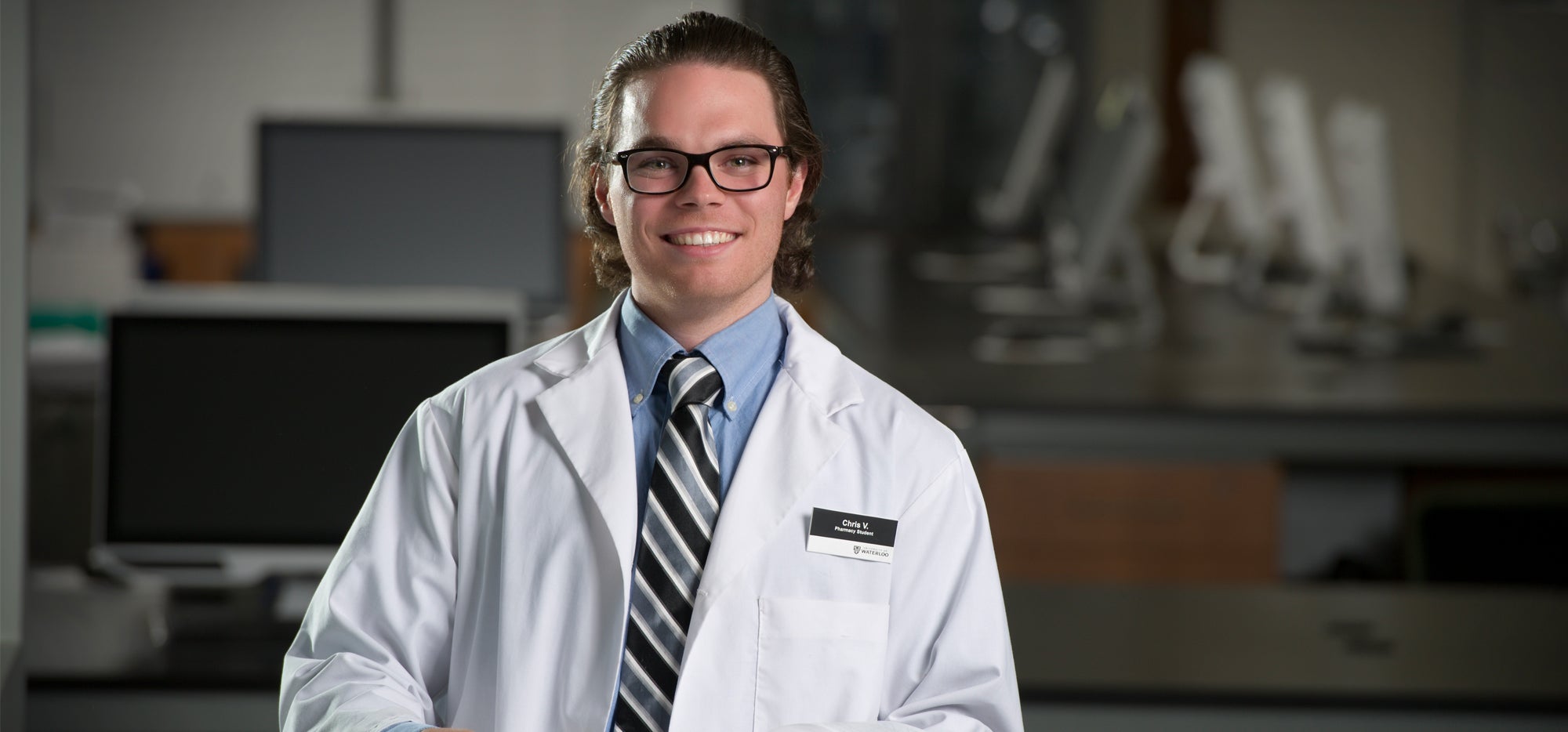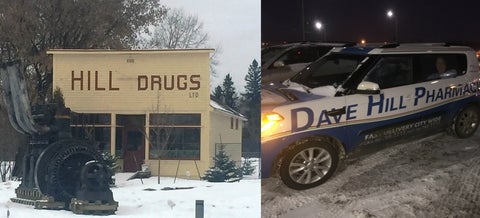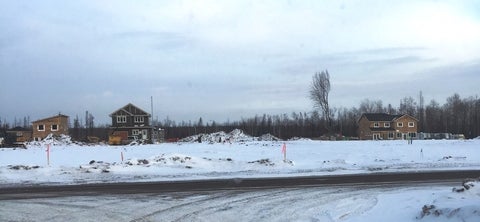
7 hours north of Calgary, the northern lights are easily visible in Fort McMurray

In Canada, Alberta is looked on as the leading province for pharmacy practice. All Albertan pharmacists can order lab tests and initiate therapy for minor ailments, and those with additional authorization can prescribe independently for most prescription-requiring drugs. These are all services Ontario pharmacists can’t provide.
PharmD student Chris Voss (right) wanted to see Albertan pharmacy practice in action. For his first co-op term January-April 2017, he only applied to jobs in Alberta.
“I’d worked at a community pharmacy in Ontario for three years,” explained Voss. “I wanted to see something different. For me it was an adventure, driving across the ‘great white north’ to this place where pharmacists have so much autonomy.”
Voss landed a work term at Dave Hill Pharmacy in Fort McMurray, a town of about 60,000 people, located seven hours north of Calgary. In May 2016 Fort McMurray made headlines worldwide as a devastating wild fire forced the evacuation of the town and surrounding areas. Dave Hill Pharmacy was the only pharmacy to stay open during the evacuation, providing medical supplies and toiletries to firefighters, police, the oil sand companies, and civilians during the chaotic time.

Now a historic building, the original Hill Drugs was run by Dave Hill’s grandfather in 1934. Right: The pharmacy delivery vehicle that Voss drove.
While working at the community pharmacy half a year later, Voss felt the impact of the fire.
“Not a lot of family doctors came back after the fire. This left a big gap in care for patients. With only about 25 family doctors in town, you can imagine how difficult it was for patients to get a doctor’s appointment.”
Given this need, the wide scope of pharmacist practice was especially beneficial. At Dave Hill Pharmacy, there was always at least one pharmacist with the additional prescribing authorization working at a time.
“Prescribing pharmacists addressed this gap in care,” Voss says. “We could do point of care testing like the strep test, and then the pharmacist on duty could prescribe antibiotics if they were needed.”
They could also refer patients for lab work or to pharmacist-run clinics where they received support for chronic conditions like diabetes and hypertension.
“Patients were so thankful that they didn’t have to wait for care. Someone said thank you to me at least once every day.”
The selflessness demonstrated by Dave Hill and his staff is very much part of the pharmacy’s philosophy.
“It was awesome to see how pharmacists could really help people,” Voss recalls. “Whether it was a patient who came in fifteen minutes after midnight when we closed or someone who couldn’t get into see the doctor, the pharmacists were always willing to help.”
For Voss, the expanded scope led to an atmosphere of immediate problem-solving that differed greatly from his Ontario experience.
“In Ontario, we often have to send people to the hospital or a walk-in clinic so they can get the information we need to provide care. In Alberta, the only time we’d send people away was when they needed more help than we could provide at the pharmacy.”

A section of the town that was destroyed by the fire, now being rebuilt.
Voss lived most of his life in Waterloo, so a co-op term in northern Alberta was quite a change – there were some days when the thermometer read -40 degrees. Despite that, he wants to go back next term.
“It was a fantastic experience. I’m already applying to Alberta for my next co-op. It’s where I want to work when I graduate.”